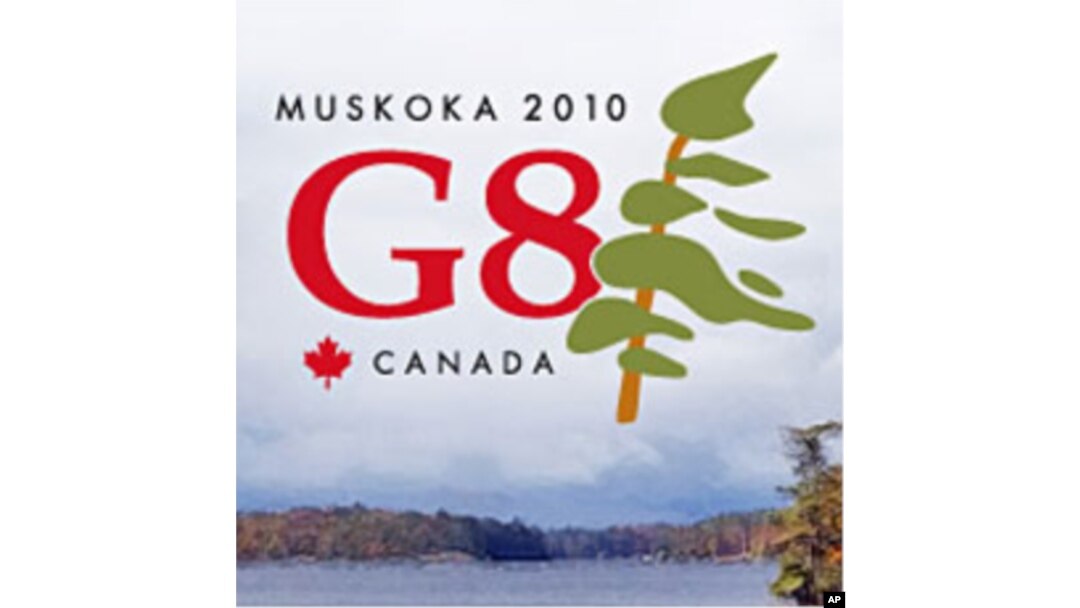Later this month, both the G8 and G20 summits are being held in Canada, and this year the two summits overlap. The G8 Muskoka Summit will be held June 25th and 26th, while the Toronto G20 summit is set for June 26th and 27th.
Some of the G8 priorities this year include accountability and effectiveness – child and maternal health – nuclear security and the war against terrorists.
John Kirton, director of the G8 Research Group and co-director of the G20 Research group, says overlapping the summits is significant.
“It certainly is the first time,” he says, “at least in a long while when the two summits will be held basically together in tight tandem (in) time, space and inevitably in reality in the coordination between the two.”
Double duty
Canadian Prime Minister Stephen Harper is chairing both summits. Laying the groundwork are representatives for world leaders called Sherpas, a term taken from those who assist climbers reach mountain summits. Harper’s Sherpa is the same for both meetings.

G8, G20 Summits Overlap in Canada this Month
“So, they sort of coordinated every second,” says Kirton, adding, “It’s also the case that the G20 summit is important, because it’s the first time that it’s being co-chaired by an old G8 country, Canada, and a non G8 member of the G20, the Republic of Korea.”
He says the co-chairing of the summit “really does represent a delivery of the new character of the G20.”
“The sequencing of the two summits,” says Kirton, “I think has advantages in several ways.”
One is if the G8 fails to get all its work done in two days, it can carry it over to the G20 and possibly seek assistance in reaching a particular goal.
Death knell for the G8?
Some critics of the G8 have said it is outdated and calling the G20 more relevant. But Kirton says the death knell for the G8 is not being heard.
“Absolutely not. G8 of course has proven its worth over 36 years. It was established to do the very particular job of promoting open democracy, individual liberty and social advance around the world,” he says.
Kirton says the vast majority of G20 countries believe in those ideals, too, aside from the People’s Republic of China and Saudi Arabia.
However, he says, “The G20 was created really to do a very different job in the world…. [to] provide financial stability, sustainable growth, globalization that benefits all.”
Kirton says the G8’s job is more political while the G20’s job is more financial.
“I guess the larger global challenge is for those two jobs to come together,” he says. However, until all the G20 countries are a democracy, that’s not expected to happen.
“The G8 has an extraordinarily important role to do. And that’s why the G8 last summer decided it would stay in business.” Next year’s G8 summit is scheduled to be held in France.
Promises, promises
Critics of the G8 say leaders often make promises they fail to keep. But he says, overall, G8 leaders have a pretty good track record.
“I think that all of us know that while bold promises may be made in the State of the Union Address or the Queen’s speech…we really don’t expect our democratic governors to get a 100% on their report card within a year and sometimes for very good reason,” he says.
He says if conditions change, it may actually be a “bad idea” to keep an old promise.
“We do know that G8 leaders at the G8 summit comply within a year before the next summit at about a grade of B - at about 75 percent, which is really rather good,” he says.
The upcoming G8 summit is also expected to address food security, the rebuilding of earthquake-ravaged Haiti and Mexico’s battle against drug cartels, “which are infecting America, Canada (and) Europe, too.”

